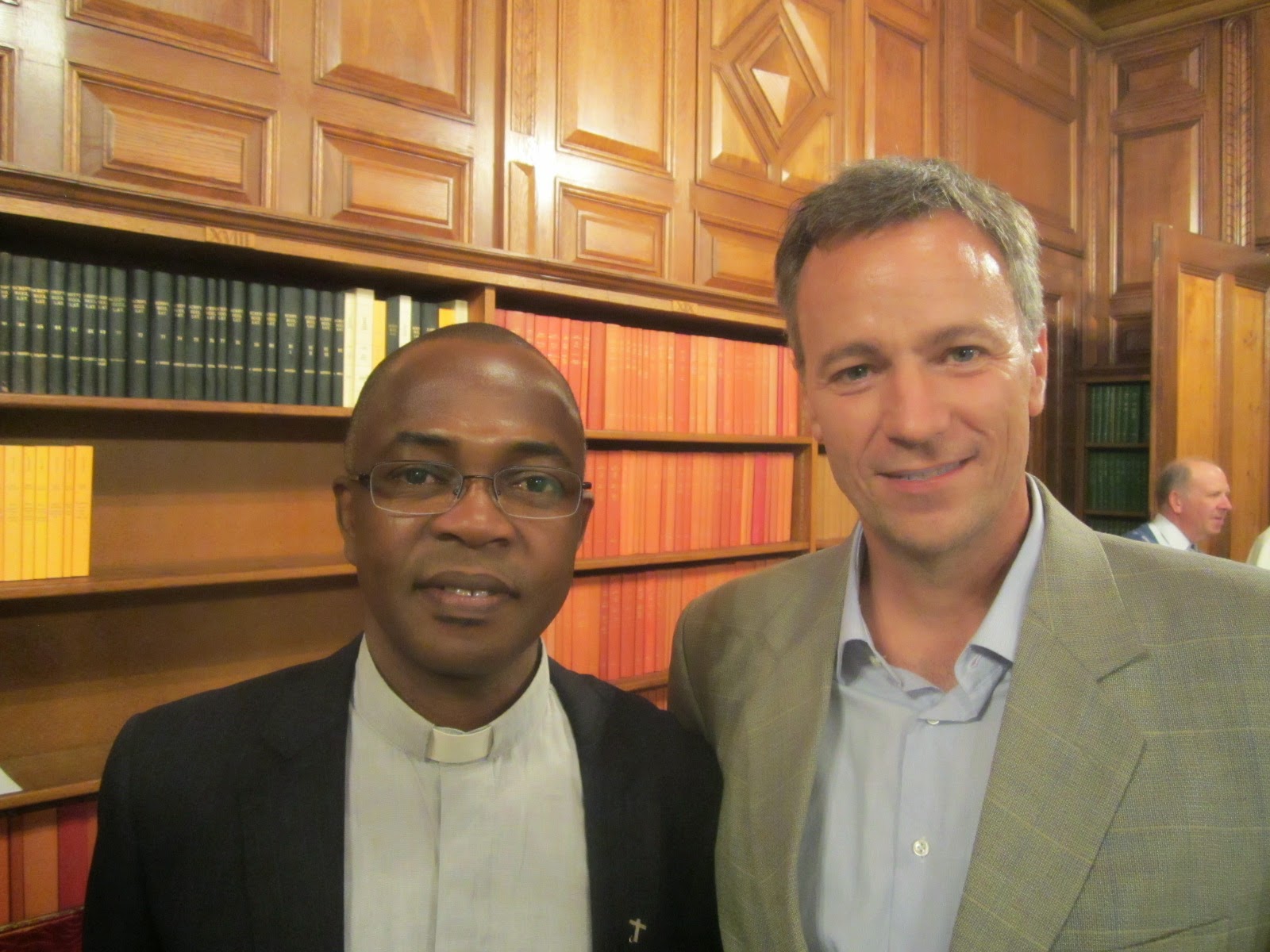 |
| Swiss Linguistic Landscape (2000) - www.bfs.admin.ch |
We live very close to the so-called "Röstigrabe" or "Barrière de Rösti," that is, the term for the linguistic border, especially between French and German-speaking populations. (Click
here for a linguistic map.)
This is not to be confused with the Swiss borders with France, Germany, Austria, and Italy. That's challenging enough when you consider that Switzerland (15,940 sq mi/41,285
km2) is smaller than my home state of Virginia (42,774.2 sq mi/110,785.67
km2).
To give you an idea of this linguistic landscape, look on a Swiss map for Senèdes (where we live, hard to find!) and Giffers (where Lilian works, also hard to find!). Senèdes is a French-speaking village. There are no road signs or shops in German to help those from the other side. Lilian drives ten minutes to the east and she's in Giffers, a German-speaking village. Now, politically, Senèdes and Giffers are both in the same canton (similar to a state). Official documents are always in both languages. Kids learn German, French, and English, so they are supposed to be able to communicate well with each other. Many are bilingual, even trilingual. Swiss people grow up with visual and audible reminders that they live near "other speakers." This ranges from multilingual ingredients on food products, technical instructions, media, and public announcements like in trains. Or on a more personal level, you might meet someone who just speaks to you in their language, since you are supposed to understand it, and you have the right to answer back in your language. This happened one day when I was trying to figure out how to get a bus ticket from the vending machine on the French-speaking side of Fribourg. The bus driver noticed my perplexity and compassionately got out of the bus to help me. So, I started to speak to him in French, but he let out the ticket for me explaining the whole process in his German dialect. It worked. Sometimes this linguistic encounter can be quite simple like when you enter Fribourg (where I work), you are greeted by a bilingual sign with "Fribourg" and "Freiburg." Not too hard to figure that out. Yet, if it were only that easy...the difference in place names can be so drastic as "Düdingen" (in German) and "Guin" (in French)!
Besides these obvious differences between languages, a few things complicate
real communication. First, on the German-speaking side, they also speak dialects. So, you can imagine how the French-speaking population feel...they learn standard German in school and not one of the Swiss German dialects (because there are in fact many Swiss German dialects!). This problem can be overcome by the fact that French speakers can just speak standard German, because the German dialect speakers know standard German well...or at least they should...You see they are very proud of their own language and in general don't really like to speak standard German. Ugh. You see how it's complicated...and this leads to the next challenge or opportunity, namely, the use of English!
Second, these days most Swiss youth like to learn and speak English. This is true on both sides of the linguistic border. So, what often happens is that when young people from German and French-speaking sides meet, they often choose English as their common language. It works quite well when both parties feel comfortable expressing themselves in English. This happens in private conversation, but even in university classrooms and research centers. At the University of Fribourg/Freiburg, I constantly here German, Swiss German, French, Italian, and English. Sometimes you can hear people switch from one language to another in mid-sentence.
So, for English speakers, this means it is fairly easy to mix with Swiss people, right? Yes and no. Yes, with the younger folks, but much less with the older generations. Also, English can only get you so far socially, since it isn't reasonable to expect an entire group (class, family, club, etc.) to switch to English just because you are there. Swiss are hospitable...but let them be Swiss, please. There simply has to be an agreement when English is necessary to allow communication to happen or to get the job done.
Now, you might be wondering what this "Rösti" is all about. It is a Swiss dish like "hashed potatoes," which represents one of those national myths that Rösti is a defining factor between the regions, that is, that the Swiss Germans actually eat more Rösti than their French-speaking compatriots! In fact, people on both sides enjoy this dish and there are different competing recipes for it. So, if you want to eat well, come to Switzerland (there's more than just Rösti!), but even more so, come to Switzerland if you want to experience a linguistic challenge or opportunity!
Salut, Tschüss, Ciao, Bye!





.jpg)




